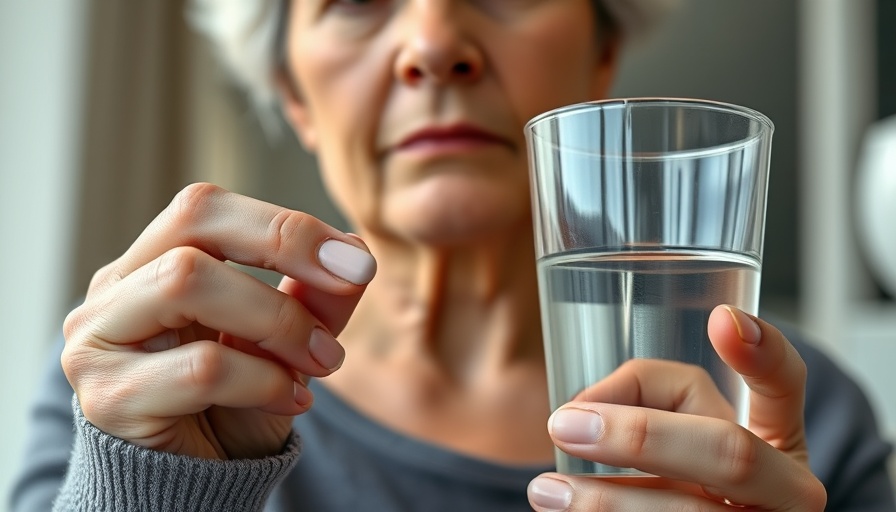
Understanding Menopause: A Natural Transition
Menopause is often discussed in hushed tones, shrouded in stigma and misinformation. However, it’s crucial to recognize that menopause is a natural biological stage that affects anyone with functioning ovaries. Typically occurring between the ages of 45 and 55, it marks the end of menstruation and is characterized by various physical and emotional changes due to the decline of hormones such as estrogen and progesterone.
According to leading Australian gynecologist Prof. Martha Hickey, menopause should not be treated like a disease requiring diagnosis but rather an inevitable phase of life. Over three-quarters of Australian women report experiencing symptoms like hot flashes, night sweats, and mood swings, which significantly impact their quality of life and workplace productivity. Alarmingly, more than 85% of these women are not receiving effective treatment, often because of a lack of awareness about available options.
The Shift Toward Menopause Awareness and Care
Recent developments in menopause management indicate a positive shift towards better awareness and care for women in Australia. The 2024 Senate Inquiry into menopause has highlighted the importance of providing evidence-based treatments. As dialogue around menopause grows, more women are encouraged to seek help and explore effective management strategies.
For aesthetic doctors, who are frequently viewed as trusted health advocates, it is essential to stay informed about the latest treatments and guidelines. This insight enables them to offer support tailored to women's individual experiences and needs. Access to knowledge and resources means women can take proactive steps in managing their menopause journey.
Menopausal Hormone Therapy: What You Need to Know
The gold standard for alleviating menopausal symptoms is Menopausal Hormone Therapy (MHT), also known as Hormone Replacement Therapy (HRT). MHT involves administering hormones like estrogen and progesterone to combat the hormonal imbalance associated with menopause.
Research shows that MHT significantly reduces hot flashes and night sweats, improves mood stability, and even helps prevent osteoporosis, a common concern among menopausal women. Customizing hormone therapy to fit each woman's specific hormonal makeup enhances the effectiveness and safety of treatment.
Exploring Non-Hormonal Treatment Options
While MHT is highly regarded, some women may prefer non-hormonal alternatives. Options include lifestyle modifications, herbal supplements, and other complementary therapies. For example, dietary changes focusing on omega-3 fatty acids and phytoestrogens may alleviate symptoms.
Home remedies, including mindfulness training, acupuncture, and yoga, are also gaining traction as effective ways to manage menopause symptoms naturally. As we learn more about these alternatives, it’s essential to consult healthcare providers to ensure approaches align with individual health needs.
Looking Ahead: Future of Menopause Management
The future of menopause care looks promising, with greater awareness and advocacy leading to improved access to treatments and services. Expect to see increases in community support groups, educational programs, and more women sharing their stories to help demystify menopause.
Researchers are working tirelessly to expand the understanding of menopausal health, ensuring that women can expect more effective and personalized treatments moving forward. The conversation around menopause is evolving, making it ever more critical that women feel empowered to seek help and advocate for their health.
Addressing Common Misconceptions
Many myths about menopause continue to prevail, contributing to the stigma surrounding the transition. For instance, some believe menopause equates to the end of vitality or sexual desire. Contrary to this misconception, many women find new aspects of their identities and can enjoy fulfilling lives post-menopause.
Recognizing that menopause is not a defining limit but a transition can empower women to embrace this natural change positively. Understanding the facts surrounding menopause enhances the acceptance of this phase as a normal part of life, allowing for more open discussions and support.
Empower Yourself: Take Charge of Your Health
Encouraging women to prioritize their health during menopause is vital. Finding a supportive healthcare provider, whether it be a gynecologist or a general practitioner, can facilitate a smooth transition. Women should feel empowered to ask questions about their symptoms and explore treatment options.
Engagement with healthcare systems and advocacy for better care can lead to significant improvements in the menopausal experience. By equipping themselves with knowledge and resources, women can successfully navigate this phase of life with confidence and positivity.
With menopause increasingly recognized as a public health issue, its implications for women everywhere are profound. More than ever, now is the time to ensure that proper treatment is accessible, and that women know there is support for their unique journeys.
If you or someone you know is experiencing the effects of menopause, seek support and explore treatment options. Together, we can foster a culture of understanding and empowerment for women at this pivotal stage of their lives.
 Add Row
Add Row  Add
Add 






Write A Comment